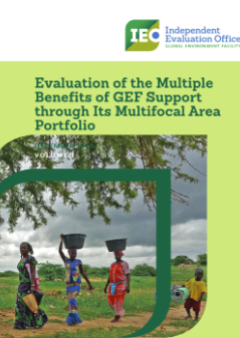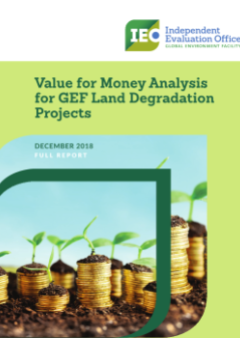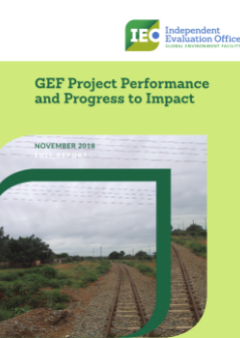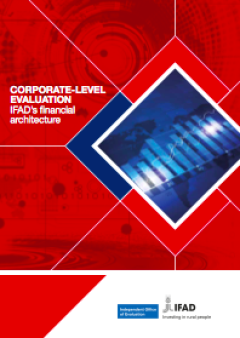

Documents
Member's Documents
Using a mixed methods approach, the GEF Independent Evaluation Office (IEO) seeks to assess the extent to which GEF support has contributed to the generation of multiple benefits by addressing environmental issues through a multi-focal approach.
Member's Documents
This analysis brings together economists, computer scientists and geographers with expertise in remote sensing and impact evaluation to apply a value for money (VFM) assessment to the case of GEF Land Degradation (LD) projects.
Member's Documents
The Sixth Comprehensive Evaluation of the GEF (OPS6) is being undertaken to inform the GEF-7 replenishment on the results and performance of the GEF Partnership and of the activities that the partnership supports, and on areas for further improvement.
Member's Documents
The 2018 Annual Report on Results and Impact of IFAD operations (ARRI) presents a synthesis of IFAD’s performance and highlights results and systemic issues from independent evaluations conducted in 2017. The quantitative analysis draws on ratings from 320 evaluations conducted since 2002.
Member's Documents
The overarching purpose of the corporate-level evaluation on IFAD’s financial architecture is to independently assess how IFAD creates value for Member States through sound investment decisions and financial strategies contributing to rural poverty reduction. This is the first evaluation of…
Member's Documents
This is the first country strategy and programme evaluation of Cameroon conducted by the Independent Office of Evaluation of IFAD (IOE) and it covers the partnership between the Government and IFAD from 2007 to 2017. During this time, IFAD provided funding for six rural development projects to…
Document Type:
Filter By Member:
- (-) Independent Office of Evaluation, International Fund for Agricultural Development (68)
- (-) Independent Evaluation Office, Global Environment Facility (40)
- Office of Evaluation and Oversight, Inter-American Development Bank (121)
- Independent Evaluation Department, European Bank for Reconstruction and Development (106)
- Independent Development Evaluation, African Development Bank (85)
- Independent Evaluation Group (IEG), World Bank Group (60)
- Independent Evaluation Department, Asian Development Bank (54)
- Evaluation (EV), European Investment Bank (48)
- Independent Evaluation Department, Islamic Development Bank (26)
- Independent Evaluation Office of the International Monetary Fund (23)
- Independent Evaluation Office, New Development Bank (7)
- United Nations Evaluation Group (UNEG) (6)
- OECD-DAC Evaluation Network (1)





